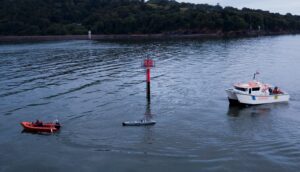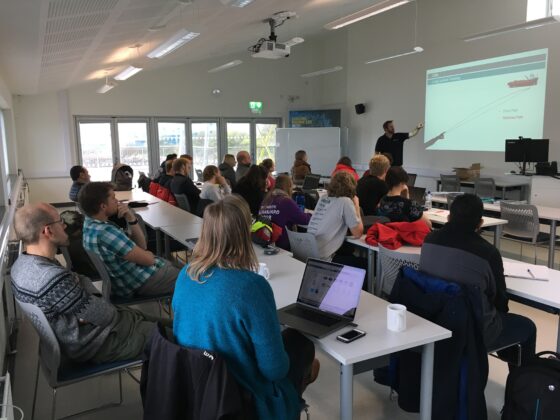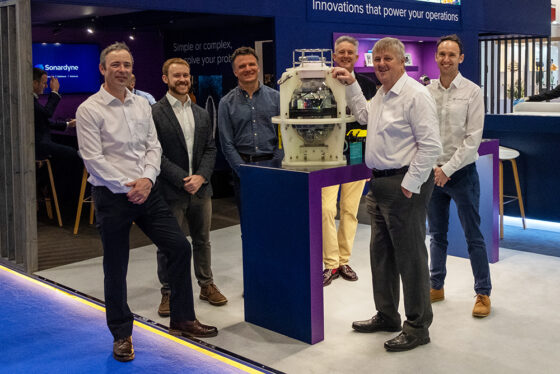
Plymouth University partners with marine tech company

The University of Plymouth and marine technology company Sonardyne have agreed a strategic partnership to drive innovation within the UK’s growing marine robotic and autonomous systems sector.
The partnership aims to advance ocean data gathering technologies and platforms by leveraging the University’s academic resources and research facilities, Sonardyne’s acoustic and inertial navigation technologies, and the marine proving area Smart Sound Plymouth.
Under the new agreement, the partners will work together to evaluate and develop emerging technologies on the university’s fleet of crewed and uncrewed surface and underwater platforms, all underpinned by a suite of Sonardyne’s technologies.
This will include testing and evaluation onboard uncrewed systems loaned to the University by the Royal Navy, to support its research and development around maritime autonomous systems capabilities.
The partnership will help establish closer working relationships between the University and Sonardyne, including enabling undergraduate and postgraduate students to participate in the testing of cutting-edge equipment, as well as highlighting future career opportunities.

Staff from Sonardyne working with students on a number of university programmes
The initial three-year collaboration will also explore funding opportunities for joint research in areas of mutual interest, including ocean exploration, hydrography, ropeless fishing, offshore renewable energy and defence.
While Sonardyne has worked closely with the university on a range of projects over many years, this new agreement aims to bring a more coordinated and targeted approach to fields of mutual interest.
Kevin Forshaw, director of industrial and strategic partnerships in the university’s faculty of science and engineering, says: “We are delighted to be deepening our collaboration with Sonardyne. The company has long-established connections with the city of Plymouth, and this new partnership will allow us both to push the boundaries of new technological development for remote and sustained ocean observation.
“It also ensures Plymouth remains at the forefront of driving innovation in high-growth market applications for the rapidly growing global ocean economy.”

Staff from the University of Plymouth and Sonardyne at the Oceanology International event in London in March 2022
Geraint West, head of science at Sonardyne, adds: “We have a long heritage in Plymouth and our roots in this historic naval city date back to 1982 – 40 years ago exactly. We have also based our trials and training centre in the city since 1993. Throughout those years, we’ve valued our role in supporting and collaborating with academia, so we’re delighted to be deepening our relationship with the University of Plymouth and in turn supporting the UK’s maritime autonomous cluster in this area.”
